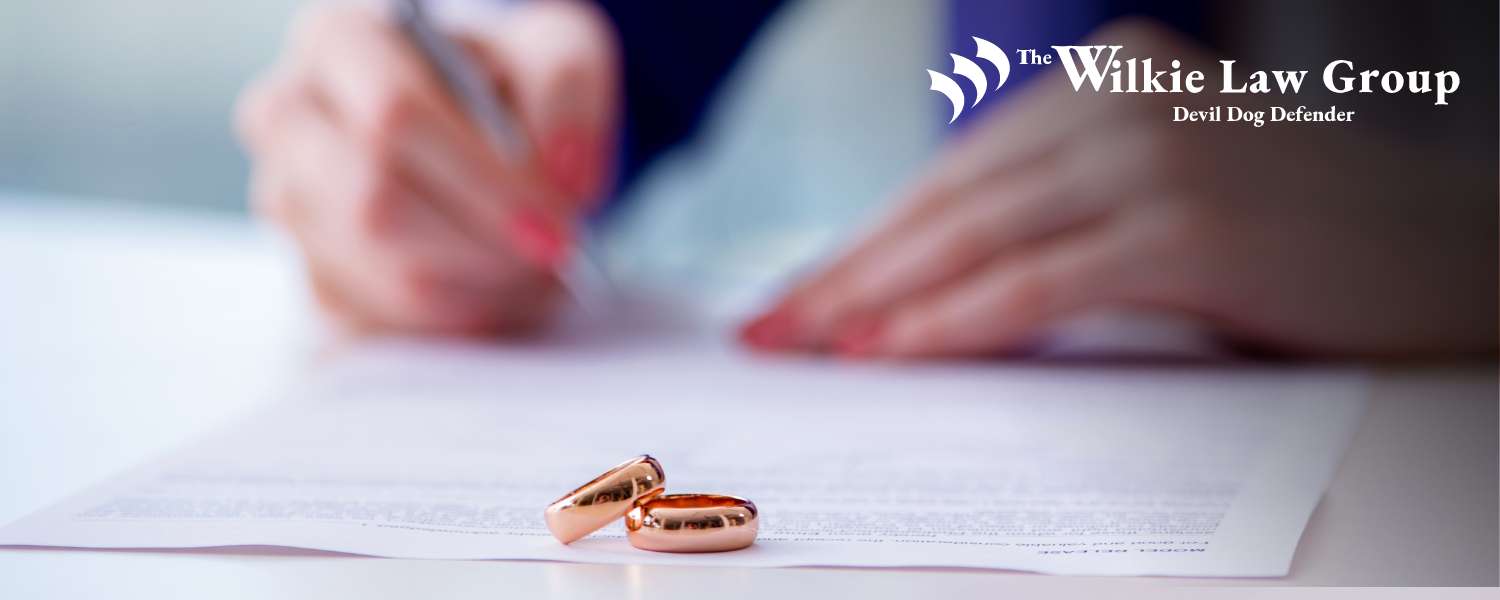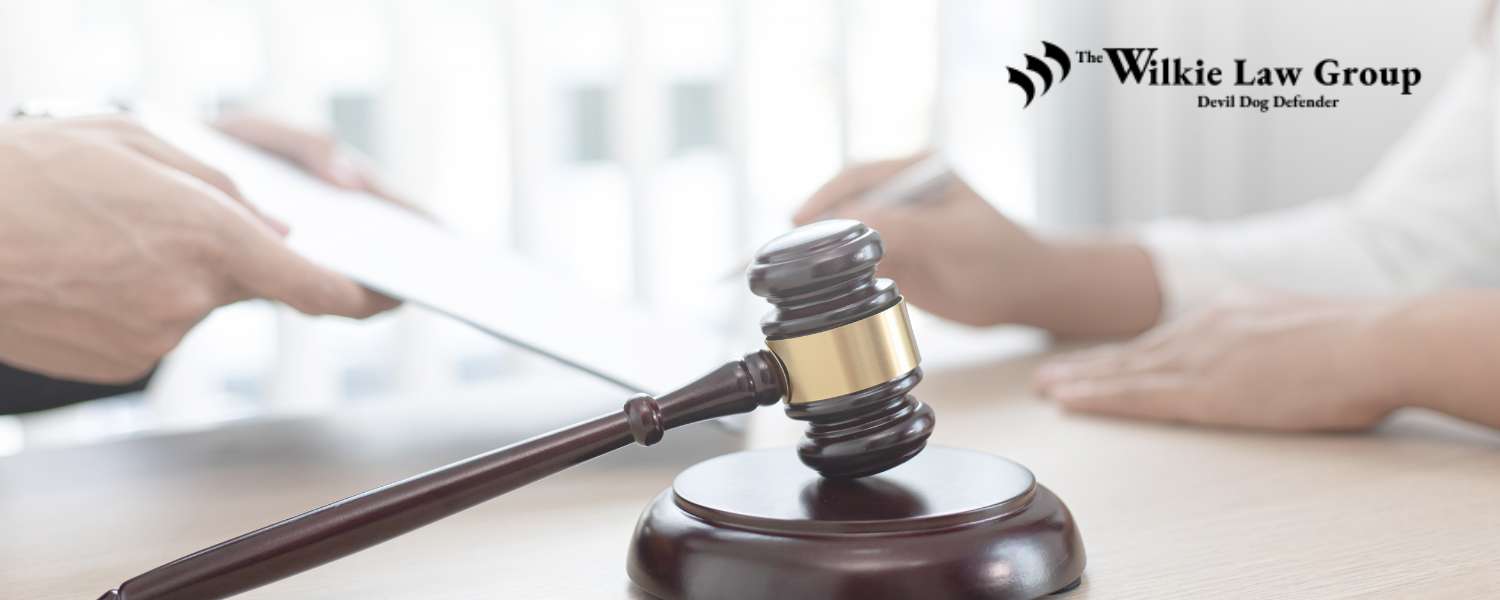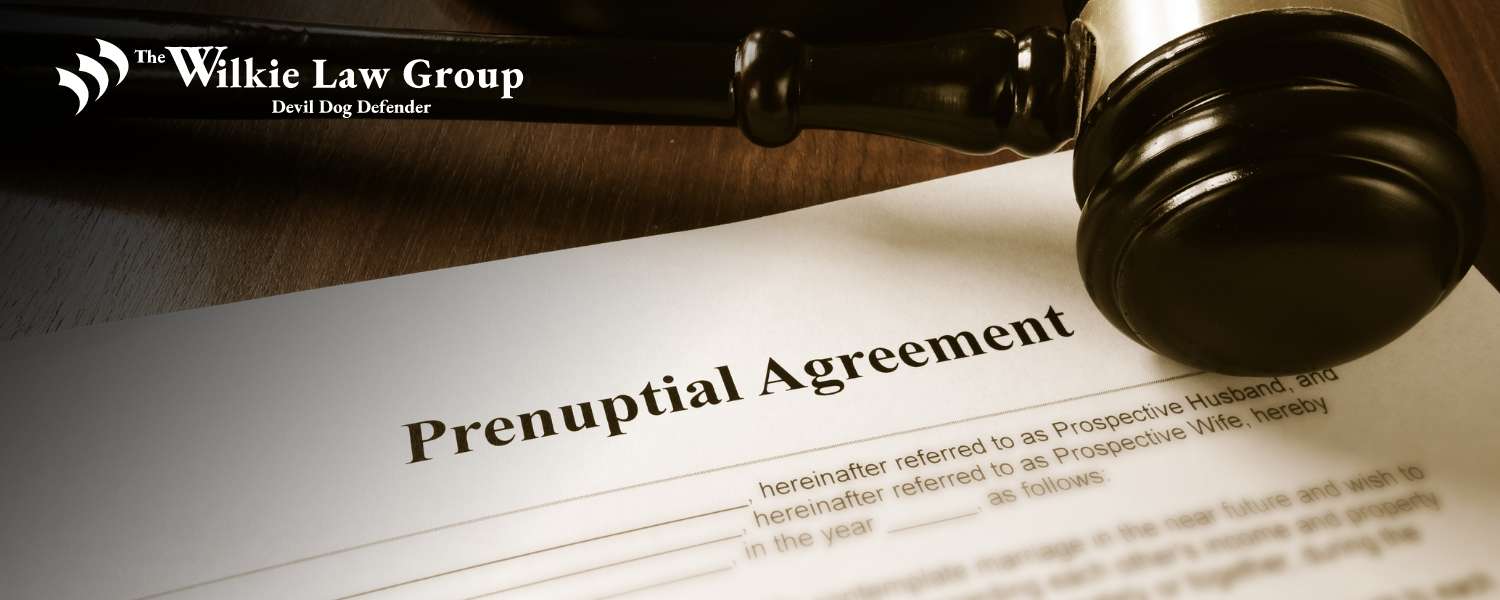Prenup Lawyer in Jacksonville, NC
Home » Civilian Family Law Attorney » Prenup Lawyer
Practice Areas
Jacksonville Prenup Lawyers
Experienced Family Law Attorney for Prenuptial Agreements in Eastern North Carolina
At The Wilkie Law Group, we understand the importance of safeguarding your financial future and ensuring clarity in your marital commitments. As family law attorneys with plenty of experience handling prenuptial agreements in North Carolina, we are dedicated to providing personalized and effective legal solutions.
Our team is committed to guiding you through the legal process with professionalism and care, ensuring that your prenuptial agreement is thorough, fair, and legally sound. Trust The Wilkie Law Group to help you establish a strong foundation for your marriage.
Call (910) 333-9626 or reach out online to schedule a consultation with one of the experienced Jacksonville family law attorneys at our law office today.

What is a Nuptial Agreement?
A nuptial agreement, commonly known as a prenuptial or postnuptial agreement, is a legal contract between spouses or soon-to-be spouses that outlines the division of assets, financial responsibilities, and other relevant matters in the event of a divorce or separation.
This agreement is designed to protect individual assets, clarify financial rights, and reduce conflicts by providing a clear plan for asset distribution. It can also address issues like spousal support, debt allocation, and handling property acquired during the marriage.
A nuptial agreement establishes these terms in advance, helping ensure a smoother and more amicable resolution should the marriage end.
Prenups vs. Postnups
A prenuptial agreement (prenup) and postnuptial agreement (postnup) are both legal contracts designed to manage the division of assets and financial responsibilities in a marriage, but they differ in timing and context.
Prenups are established before a couple marries, setting clear expectations and protections regarding property, debts, and financial matters from the beginning. They are often used to safeguard individual assets, especially in cases where one party has significant wealth or expects future inheritances.
Postnups, on the other hand, are created after the marriage has already begun. These agreements can address changes in financial status, such as significant changes in income or assets, or resolve disputes that arise during the marriage.
Both types of agreements aim to prevent conflicts and ensure fair treatment in the event of a divorce or separation.

What Does a Prenup Entail?
A prenuptial agreement (prenup) is a detailed legal contract that outlines each spouse’s financial and property rights before entering into marriage. It typically includes provisions for dividing assets and debts, outlining what is considered separate and marital property.
Additionally, a prenup can specify terms for spousal support, inheritance rights, and managing finances during the marriage. It may also address how future income, investments, and business interests will be treated.
By clearly defining these terms, a prenup protects individual interests, minimizes conflicts, and provides a clear framework for financial responsibilities and expectations. It ensures both parties are on the same page should the marriage end.
Chapter 52B of the Uniform Premarital Agreement Act
Chapter 52B of the Uniform Premarital Agreement Act (UPAA) provides a standardized legal framework for prenuptial agreements across different states. This chapter outlines the necessary elements for a valid prenup, including requirements for voluntary execution and full disclosure of assets and liabilities by both parties.
Under Chapter 52B, a prenuptial agreement must be in writing and signed by both parties and becomes effective upon marriage. The chapter specifies that the agreement can address family law matters such as property rights, asset division, and spousal support but does not address child support.
By establishing clear guidelines, the UPAA promotes consistency and fairness in handling prenuptial agreements, ensuring that they are made with informed consent and equitably upheld in court.

How To Get a Prenup in North Carolina
To get a prenup in North Carolina, both parties should begin by consulting with their respective divorce attorney to ensure their interests are protected and the agreement complies with state laws.
The process starts with fully disclosing each party’s assets, liabilities, and income to ensure transparency. After this, the couple can negotiate the prenup terms, covering aspects such as the division of property, debt responsibilities, and spousal support. The agreement must be voluntary and not signed under duress or coercion.
Once both parties agree on the terms, the prenup must be put in writing and signed by both individuals before the marriage. The attorneys should review and approve the final document to ensure it meets all legal requirements and is enforceable in North Carolina courts.
How a North Carolina Prenuptial Agreement Lawyer Can Help
A North Carolina prenuptial agreement lawyer like those at The Wilkie Law Group is committed to providing quality representation and guidance in creating a prenuptial agreement that is legally sound and tailored to your specific needs. An experienced family law attorney can offer knowledgeable guidance on state laws and ensure all necessary elements, such as full disclosure of assets and voluntary agreement, are met.
A family law attorney in North Carolina can also help negotiate equitable distribution, addressing issues like property division, debt allocation, and spousal support. They’ll also ensure that the prenup is drafted clearly and comprehensively to avoid future legal issues.
By reviewing and finalizing the agreement, a North Carolina prenuptial agreement lawyer ensures that your rights and interests are protected throughout the legal process and the document is enforceable in court.

NC Prenup FAQs
How Long Does it Take to Get a Prenup?
Getting a prenuptial agreement typically takes a few weeks to a few months, depending on the complexity of the financial details and negotiations. It includes consultations with family law attorneys, full disclosure of assets and liabilities, and drafting and finalizing the agreement. Starting early ensures sufficient time for thorough preparation and review.
Do Prenups Expire?
Prenuptial agreements generally do not expire and remain enforceable throughout the marriage unless specific conditions or expiration dates are included in the document. However, they can be amended or revoked if both parties agree and follow the proper legal procedures. Reviewing the prenup periodically is important to ensure it still meets both parties’ needs and circumstances.
Can Prenups Be Thrown Out?
Yes, prenuptial agreements can be thrown out if they are invalid. This can happen if the agreement was signed under duress, if there was no full disclosure of assets, or if the terms are deemed excessive or violate public policy. Additionally, if the agreement was not properly executed according to state laws, it may be invalidated by a court.
Do You Need a Lawyer for a Prenup?
While a lawyer is not legally required for a prenup agreement, it is highly recommended. A lawyer ensures that the prenup is drafted correctly, meets state legal requirements, and protects both parties’ interests. Having separate attorneys for each party can also help prevent conflicts of interest and ensure the agreement is fair and enforceable.
What Kind of Lawyer Does Prenups?
Family law attorneys typically handle prenuptial agreements. These lawyers specialize in matters related to marriage, divorce, child support, child custody, adoption, property division, and more, making them well-equipped to draft and review prenups. They ensure the agreement complies with state laws, protects the interests of both parties, and addresses all necessary financial and legal issues.
Do Both Parties Need a Lawyer for a Prenup?
While not legally required, both parties should have their own lawyers when creating a prenup, as one lawyer cannot represent both spouses in domestic cases (or virtually any case, for that matter). This ensures that each party’s interests are independently represented and that the agreement is fair and balanced. Separate legal representation also helps to prevent potential conflicts of interest and enhances the likelihood that the prenup will be upheld in court.
Can I Draft My Own Prenup?
Yes, you can draft your prenup, but it is strongly recommended that lawyers be involved to ensure the document is legally sound and enforceable. A family law attorney can make sure the document is legally sound, provide guidance on fair and equitable terms, and help avoid potential issues that could invalidate the agreement.
Can You Contest a Prenup?
You can contest a prenup if you believe it is invalid or unfair. Common grounds for contesting a prenup are the same grounds in which a prenup might be thrown out, including lack of full disclosure of assets, signing under duress or coercion, or if the terms are unconscionable or violate public policy. If successfully challenged, the court may modify or nullify the agreement.

Call an Experienced Jacksonville Prenup Attorney at The Wilkie Law Group Today
If you have questions about a prenup agreement or any other family law matter in Onslow County or any of the surrounding counties, The Wilkie Law Group is ready to help. Jacksonville family law attorney Aden Wilkie and his experienced legal team are dedicated to providing clients with comprehensive legal services, from drafting premarital agreements to handling child custody matters, separation agreements, and more.
Experienced Jacksonville Prenup Attorneys
At our law firm, we pride ourselves on our professional manner and aggressive representation, ensuring that your rights and interests are fully protected throughout the duration of your case. To discuss your family law issues with one of our experienced attorneys, call The Wilkie Law Group at (910) 333-9626 or complete our online intake form to get in touch today.
